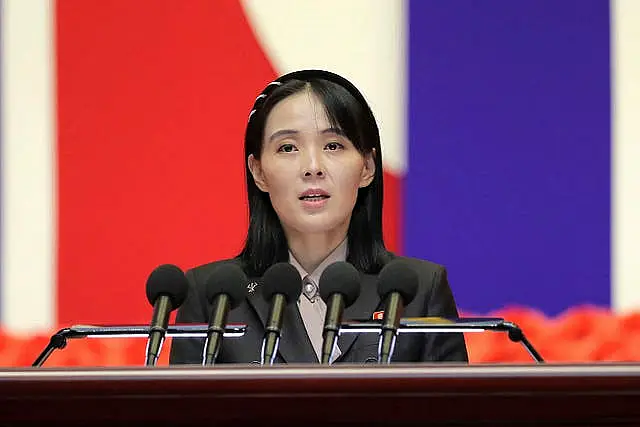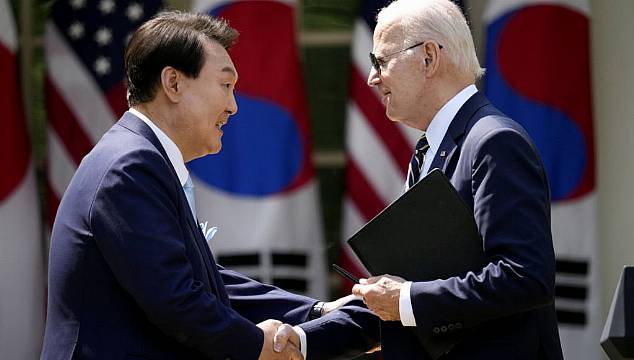North Korean leader Kim Jong Un’s sister has warned of more provocative military displays in response to a US-South Korean agreement to counter the North’s nuclear threat.
In comments on state media, Kim Yo Jong – one of Kim Jong Un’s leading foreign policy officials – said the agreement reflected a “hostile and aggressive will of action” against the North and will put peace in the region in “more serious danger”.
Her comments follow US President Joe Biden’s remark that a North Korean nuclear attack on the US or its allies would “result in the end of whatever regime” launched the action.
Mr Biden was talking after a meeting with South Korean President Yook Suk Yeol in Washington amid heightened tensions in the region.

North Korea has test-fired around 100 missiles since the start of 2022 and Kim Jong Un is widely expected to up the ante in the coming months as he accelerates a campaign aimed at cementing the North’s status as a nuclear power.
During their summit, Mr Biden and Mr Yoon announced new nuclear deterrence efforts that call for periodically docking US nuclear-armed submarines in South Korea for the first time in decades and bolstering training between the two countries.
They also committed to plans for bilateral presidential consultations in the event of a North Korean nuclear attack, the establishment of a nuclear consultative group and improved sharing of information on nuclear and strategic weapons operation plans.
Kim Yo Jong said the summit further strengthened the North’s conviction to enhance its nuclear arms capabilities and she lashed out at Mr Biden for being “too miscalculating and irresponsibly brave”, but said the North would not simply dismiss his words as a “nonsensical remark from the person in his dotage”.
“When we consider that this expression was personally used by the President of the US, our most hostile adversary, it is threatening rhetoric for which he should be prepared for far too great an after storm,” she said.
“The more the enemies are dead set on staging nuclear war exercises and the more nuclear assets they deploy in the vicinity of the Korean Peninsula, the stronger the exercise of our right to self-defence will become in direct proportion to them.”







